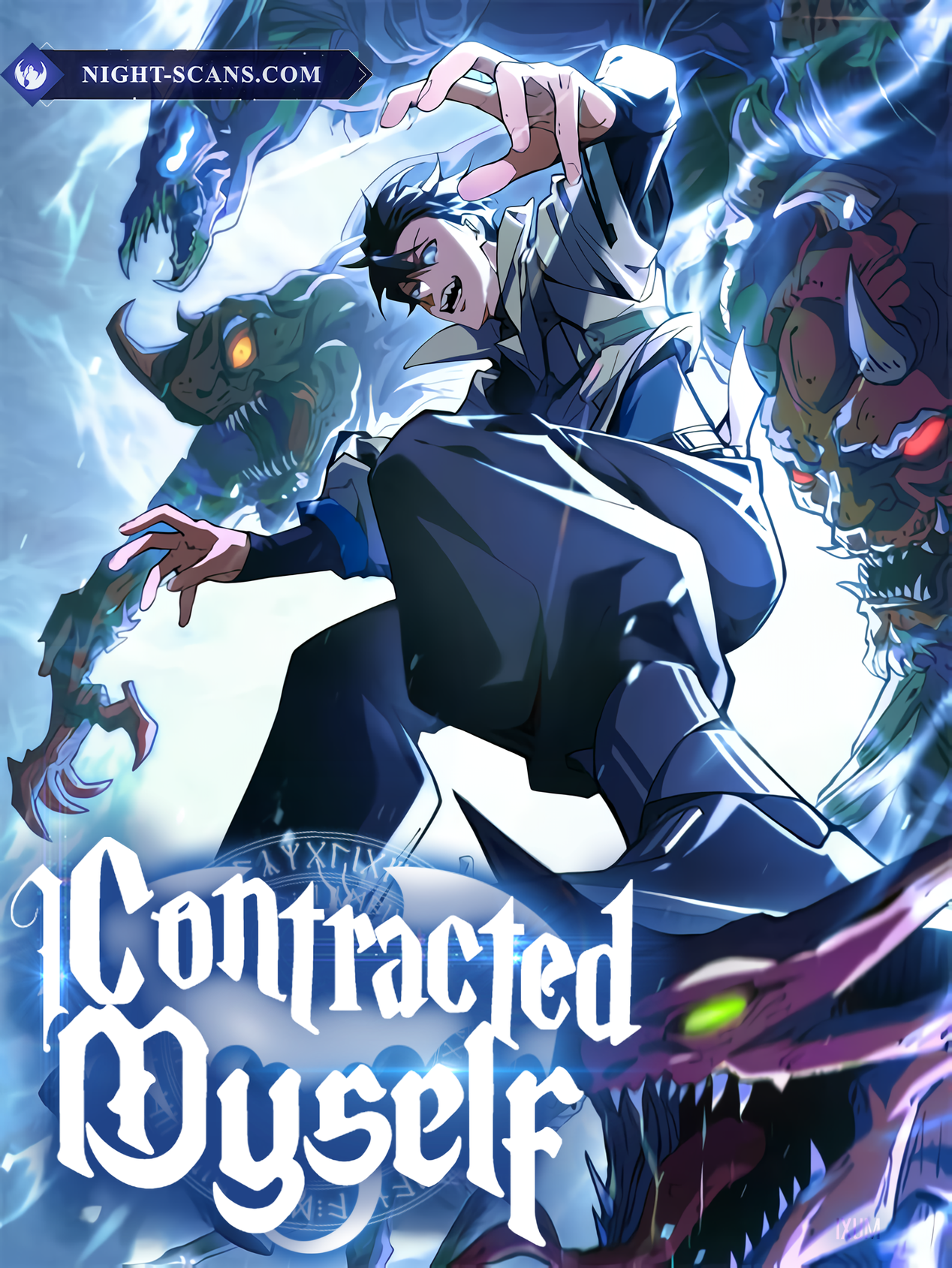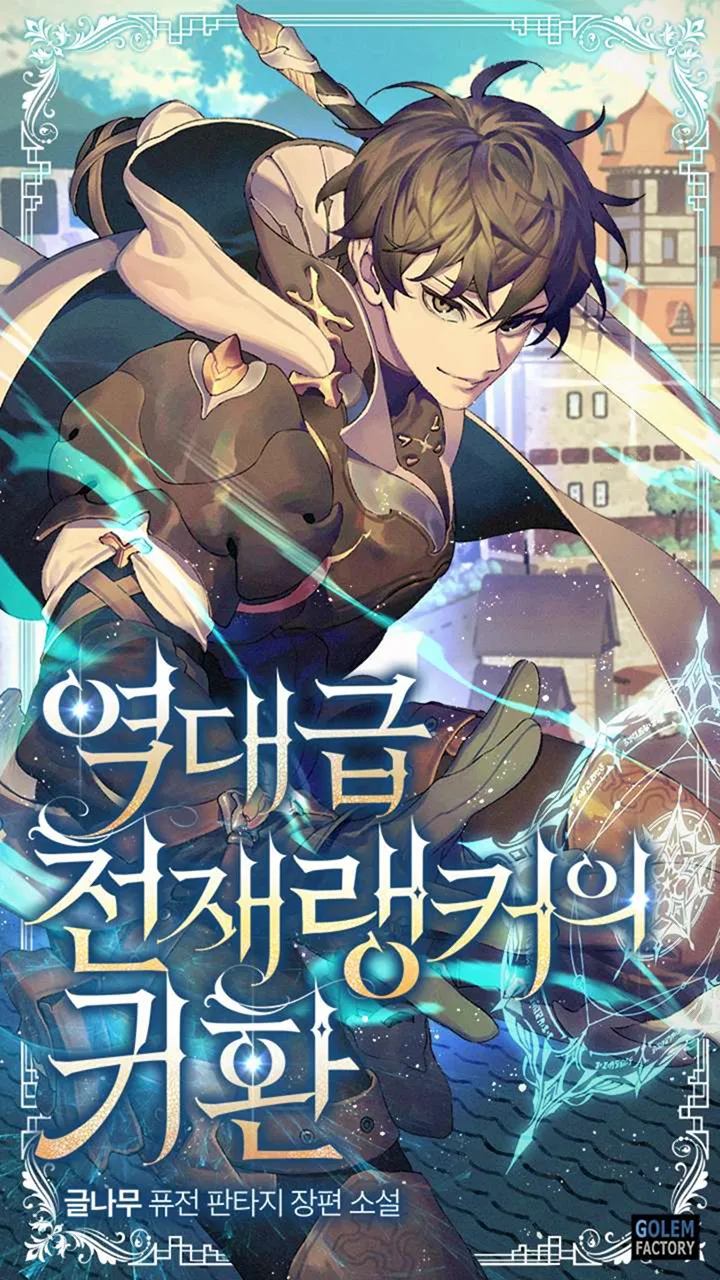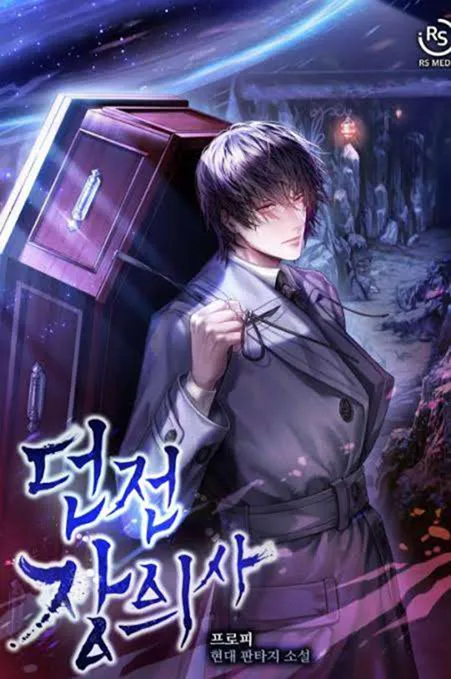Chapter 19: A Prison Without Bars
It was nearly 10 days into our journey when we arrived at the monastery.
Unlike our departure, our entire group was in a sorry state, despite some hygiene maintenance along the way. Our John described the first impression of the monastery we had endured such hardship to reach.
John blinked a few times, glanced at me, and shook his head. The monastery’s initial atmosphere differed considerably from the tranquil, rustic vibe one might typically expect.
“It’s a full-blown fortress?”
Indeed, the monastery was constructed like a small fortress. The one I arrived at stood atop a gentle hill, fully encircled by stone walls and wooden palisades with watchtowers of considerable height.
Though the walls weren’t exceedingly tall, it would take at least three or four men stacked atop each other’s shoulders to scale them. The watchtowers were positioned relatively inward near the monastery’s center, optimal for surveying all directions.
But that’s not all. The priests stationed atop the watchtowers had swords sheathed at their waists, ready to take up defensive positions immediately after sounding the alarm bell in case of emergency. Even a cursory glance revealed defenses formidable enough to deter easy challenges.
Seeing this, the monastery was essentially no different from a quasi-military organization. I shot Priest Sertell a grim look, and he opened his mouth with an affable smile as if understanding.
“The monastery houses numerous sacred relics tempered by abundant knowledge and pious faith. Yet to the eyes of plunderers, they are mere treasures to be coveted.”
“Don’t the plunderers operate mainly along the coastlines?”
“Those who find coastal defenses lacking travel upstream, while the brazen plunderers abandon their ships entirely to penetrate deep inland. Thanks to Sir Therver’s recent exploits, the Povius region has seen a respite… but the pressing need to defend oneself against knights who could strike at any time has not changed.”
In a nutshell, Priest Sertell was saying the country was in a deplorable state necessitating self-defense. The plunderers had grown so powerful and their forces so strong that feeble resistance only resulted in being completely stripped, so it was better to play dead until they left.
Having endured so much, the people eventually realized it was far better to quickly surrender, gathering and stockpiling their household wealth in one place the moment the ships appeared – essentially a quick delivery service for the plunderers.
But this too only worked for so long before the plunderers, having acquired a taste for the expedited service, began showing up virtually every other day like making their rounds through a village – axes and swords in hand as they sauntered about.
Eventually, a few lords who could no longer endure made the substantial concession of relinquishing certain rights to fervently request Duke Aselton’s support. This was the catalyst for Duke Aselton dispatching my second brother Therver to take a hardline stance.
After relating these circumstances, Priest Sertell patted the hilt of his sword with a wry smile.
“This is why even most of the priests excel in martial arts.”
“But don’t religious officials have a rule against killing, using blunt weapons instead?”
What happened to the fantasy trope of clergy being prohibited from using bladed weapons? I had assumed only senior priests engaged in swordsmanship, so I was startled to see even regular monasteries taking up arms and inquired as such.
Apparently, my question was quite amusing, as Priest Sertell broke into hearty laughter.
“Even if such a restriction existed, a priest is a lay believer, not a religious official, so it would not apply. Moreover, it is not an outright killing prohibition, but restraint from killing. And the doctrine of restraining from killing includes not easily surrendering one’s own life. Not defending oneself is considered an act of killing oneself, you see. So possessing a bladed weapon is not strictly forbidden by principle. Besides.”
“Besides?”
“It is permissible to slay the heathen who turn their backs on Lux Stella’s light.”
…I silently turned away from Priest Sertell. As it happened, John was also rolling his eyes like me. It was only natural our gazes met.
Craning his neck back from atop his horse, John murmured in a low voice:
“I knew they were strange from the start – not touching women, not drinking, just working. Aren’t all these priestly fellows a bit off in the head?”
“The cause and effect are reversed.”
“Pardon?”
“They didn’t become priests because they were strange – they became strange because they are priests.”
John’s gaze turned even more profound then, a mix of curiosity, trepidation, and bafflement, before he eventually nodded as if reaching some realization.
“Come to think of it, you’re right, Young Master.”
“?”
After exchanging various remarks as we went along, we finally arrived right before the monastery’s entrance, where a voice called out to stop us. Two priests in black robes stood side-by-side atop the wall.
“Brother Sertell, who are your companions?”
“Narva Orin Stregos Clerio Povius, the third son of Duke Aselton who has committed himself to the church.”
Priest Sertell enunciated loudly for all to hear. The priests atop the wall visibly began to falter, exchanging furtive glances as if caught unawares with no forewarning.
“Ah…umm…”
“Brother Sertell, is this person truly intent on joining us?”
“Whether he is accepted or not, the abbot will have to judge.”
“…Understood.”
Shortly after, the heavy iron gate barring the way between the monastery and myself was raised. Humility was crucial here. As a prospective novice, I dismounted and entered slowly on both feet.
But the moment I crossed beyond the walls, feeling gazes piercing me from all directions, I reconsidered. My monastery debut might have gotten off to a somewhat rocky start.
***
Until then, I had thought the atmosphere of Duke Aselton’s estate rather gloomy and dismal. After arriving at the monastery, I realized just how shallow that assumption was.
There is always something beyond. Life at the estate was grim and somber, yet paled in comparison to the oppressive aura of the monastery. Just glimpsing the passing priests was enough to make one’s breath catch in their throat.
All donned in deep brown or black robes, walking gingerly to muffle their footsteps, with hoods pulled down low – at night, their visage could elicit screams. The well-lit areas at least allowed one to breathe, but traversing the dimmer hallways with windows narrowed to arrow-slits admitted scant sunlight, making the ‘prison without bars’ nickname understandable.
A freewheeling vagabond coming to a place like this would truly feel imprisoned, especially enclosed by walls. Apparently others felt similarly, all rolling their eyes in consternation – John, Sir Topa, even the soldiers.
While Priest Sertell and his entourage seemed accustomed and at ease… first-time visitors were cowed by the overwhelming stillness where even the rustle of clothing reverberated against eardrums.
Only after overcoming this trial did the meeting with the abbot take place. Before an immaculately varnished, elaborate wooden door, Priest Sertell knocked without a word, and something was tapped in response from within, also wordlessly.
It was then that I held my breath, watching Priest Sertell open the door – they really went to such lengths instead of simply speaking? This preview foreshadowed the lifestyle awaiting me.
Just as I began regretting my choice, I entered under Priest Sertell’s guidance.
An appropriately sized room permeated with the scent of ancient tomes and faint incense. The abbot sat facing me, backlit by stained-glass windows, his expression obscured.
Compared to Priest Sertell’s plump countenance, the abbot was so gaunt that placing them side-by-side would make for a portly and scrawny pair. Without any attempt to conceal the weariness weighing heavily beneath his eyes, he spoke in a slightly raspy voice:
“The third son of Povius. One who has espied a new opportunity amidst the schism between the church and Yubas.”
Thinking it some test, I stared intently, but he did not so much as flinch – quite skilled at concealing his expressions. Rather than clumsily engage him, I decided on being frank.
“The tale has already been told, has it not? From the way you seem to know I orchestrated this incident, it appears the church officials are all aware.”
Already having heard it all, I brashly wondered aloud the point of this, my coarse words almost coming across as arrogant. But I received only a deep sigh from the abbot in response.
“So you think that as well. That the church is one body.”
“What is that supposed to mean?”
“Dismiss them. Then I shall answer you.”
Shifting my gaze, I saw Sir Topa, the soldiers, even John all nodding their heads. They must have judged that listening further would only endanger their lives. I, too, nodded, granting them leave to depart.
Only after Priest Sertell also exited, leaving just the abbot and myself, did he finally begin explaining the situation in detail.
“The church is not the unified body you imagine.”
“I asked for the reason.”
“You are but twelve years old. Young Master Narva, your plan revealed great insight, so much so that even within the church, there was significant anticipation of the benefits if you were to be embraced. That was the problem.”
It was then that the abbot first showed emotion. Now I realized his skill was not in concealing emotion, but that he simply lacked the vitality to express any due to sheer fatigue.
“That was the issue.”
“Issue?”
“The one who leaked you information about Yubas’s heretical acts was the Bishop of Povius. With the resident priest attending Duke Aselton’s permission from the Bishop of Povius, he informed you.”
The abbot rubbed his forehead with his right hand as he continued with difficulty:
“Can your keen mind comprehend why the Bishop of Povius divulged facts the church had not made public?”
…I sensed it. The sense that things had gone awry.
The very arguments I had used to persuade Duke Aselton, and the resident priest within the estate – about factions unwilling to involve Saint Aidea and the Papal State – now turned against me in another way. The very example was right beside me.
“Attacked Yubas for being the Papal State’s choice, then tried allying with the Papal State when the situation changed to undermine that? Why would a church person do such a thing?”
“…The rift with Yubas began long ago. Studying Ise’s artifacts was merely the final straw.”
Seeing Yubas’s conduct, it seemed plausible. Did they perhaps get on the wrong side for trying to stop inbreeding? So despicable, yet with further misdeeds, the speculation carried a degree of reason. But the abbot’s mention of the rift between the church and Yubas was a far more realistic and crucial matter.
“The cause was the right to appoint bishops.”
“…”
“Yubas wished to appoint bishops suited to its rule, while the Papal State and church advocated for more religious figures. Part of why the debate intensified was over the bishop’s seat of Illenifut, where the sole saint of this doctrine, Saint Illenio, is said to have resided. Ultimately, the logic of respecting Saint Illenio’s footsteps prevailed and the Papal State’s will was done. But this caused Yubas to have a change of heart as well.”
Hearing this, I could well understand how Yubas came to study Ise’s artifacts. As a newly established house, they had paid a harsh price for borrowing the Papal State’s authority. Yubas only knew there was no such thing as a free lunch, without truly experiencing it.
“But Yubas were not the only one to have a change of heart. Does that explain why the Bishop of Povius would go to such lengths?”
“The Papal State fundamentally prohibits the inheritance of religious offices. But wherever you go, there will always be those who circumvent principles. If the right of appointment lies with the secular ruler, could they not simply curry favor with that ruler to have their own kin elected as the next bishop?”
“And if the Papal State’s authority dominates them…”
“Hereditary bishoprics would be blocked, along with the covert inheritance of priesthoods.”
I could only click my tongue. Caught in the insane clash between turning a blind eye to hereditary clergy versus empowering the clergy’s power – there was no dirtier, more sordid conflict than a fight over the food bowl.
In any case, the fact that the abbot recounted these crucial details to me showed he had some ulterior motive. I pinpointed it precisely:
“So what’s the conclusion?”
As expected, the abbot tapped the desk with his right index finger as he spoke.
“Young Master Narva. The Bishop of Povius is pressuring all the monasteries and local churches in the area, insisting your admission to the monastery and entry into the priesthood must not be permitted.”
“He’s telling me to go elsewhere?”
“He did not hesitate to go so far as to say you should be killed outright, to preemptively eliminate the possibility of you becoming the Papal State’s proxy.”
After saying this much, the abbot fixed me with a half-open gaze and stated:
“I will not kill you. You will remain here as a guest, obediently.”
…I had thought the monastery felt like a prison, but it had truly become one.
***
By the time I emerged outside, it was already too late.
Priest Sertell had completely disarmed Sir Topa and the soldiers with the help of his fellow brethren. That plump-faced priest, spotting me, even waved with a satisfied smile – while holding a sword pointed at the nape of the kneeling Sir Topa’s neck.
“You have been greatly blessed. They are all quite loyal. Reminding them you were inside, they surrendered their swords of their own accord.”
“…My apologies, Young Master.”
He had addressed me so candidly that I thought I must have misheard. Staring intently at Priest Sertell, I offered a consoling remark for the bowed Sir Topa:
“If there is a way to survive yet one abandons it, that is killing oneself. Sir Topa, you still have many to serve. Do not blame yourself.”
“…Yes.”
It ended up longer than a single line, but since Sir Topa responded, it should be fine. Toward that plump-faced priest, I revealed a single curiosity:
“Why did you not simply ignore my earlier request for support? You would not have dirtied your hands then.”
“Hahaha! Young Master, who knows if the wrath of the prince who lost his son might turn toward our monastery? Moreover, our abbot means to protect you instead, Young Master.”
“Protect?”
Not imprison? A moment’s thought provided the answer.
“Even in this state, someone still wants to see who comes out on top, huh. Does Lux Stella bestow miracles even upon the likes of you?”
“Embarrassingly, I have yet to receive a miracle. Instead, I borrow the power of sacred relics to expel Ise’s devils.”
Quite regrettable. If even that whelp could receive miracles, my chances would be high too. The only one at ease amidst this situation was, as usual, John.
From his kneeling position, John looked around before addressing me, the only one he could still converse with.
“Um…Young Master.”
“What is it.”
“If you are to become a priest soon, Young Master, I understand. But why must I remain here?”
Looking down at John, I answered:
“We might as well have you tonsured while we’re at it.”
Rather than the somewhat forcible approach, a career change might be better here. We only kept John alive – with another employer, his head would have rolled long ago.










